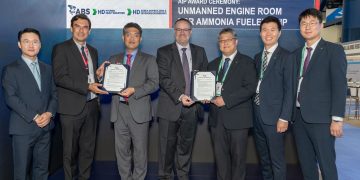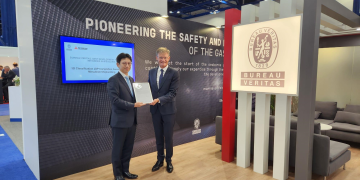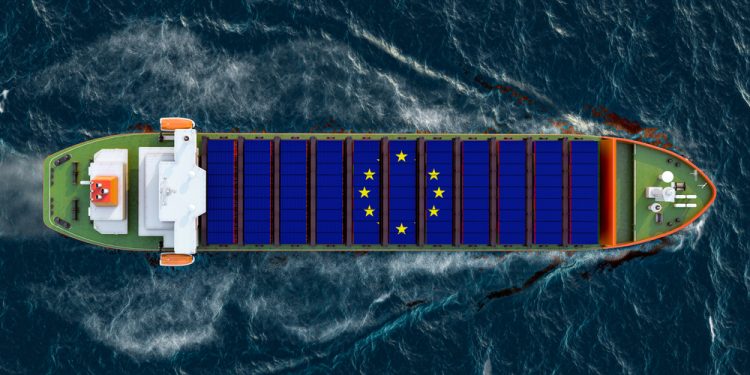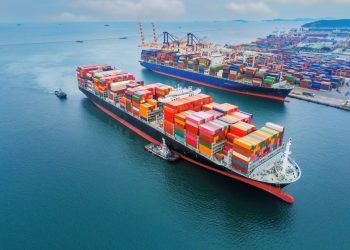EU’s waterborne transport sector has issued a Joint Declaration, charting the course towards a resilient, competitive and sustainable future.
The Joint Declaration, signed by 13 European Associations, calls for a coordinated effort between public and private sector actors, with resilience, competitiveness and level playing field as cornerstones. According to the Declaration, the European Union’s (EU) waterborne transport sector remains of paramount importance to the EU’s economic prosperity, playing a critical role in facilitating the movement of goods and people and bolstering Europe’s resilience in the face of current geopolitical challenges. The declaration also stated the following:
Key matters addressed in the declaration
- The importance of waterborne transport
- Diverse stakeholders and collaboration
- Key role in trade and economy
- Potential for emission reduction and employment generation
- Commitment to sustainability and innovation
- Importance of innovation, sustainability, and digitalization
- Advocacy for supportive policies
- Need for coordinated effort
- Commitment to ongoing dialogue and collaboration
- Prioritizing coordination meetings
Comprised of a dynamic array of public and private stakeholders, including maritime and inland waterways shipowners and operators, shipyards, equipment manufacturers, ports and terminals, as well as infrastructure and service providers, universities, research institutes, and social partners, the sector thrives on collaboration and expertise. Central to its success are the dedicated workforce, whose contributions both at sea and on land underscore the sector’s significance to the EU economy and society.
This joint declaration signed by 13 European Associations showcases the strength of cooperation between the different segments of the sector, and the commitments to the green and digital transition. However, it also clearly shows the vulnerability of the waterborne transport sector, which is of strategic importance to the EU.
… said Eero Lehtovaara, Chair of the Board of Directors, Waterborne TP
Accounting for nearly 90% of international trade, with maritime shipping alone handling 81% of the EU’s external trade and 40% of its internal trade, the sector serves as a cornerstone of Europe’s trade and economy.
Inland waterway transport, covering about 6% of the EU’s carriage of goods, offers substantial potential for emission reduction and serves as a significant employment generator, providing 4.2 million direct jobs and contributing €500 billion to the EU’s yearly GDP.
Embracing the green and digital transformation, the sector is committed to sustainability and innovation, leveraging its diverse fleet and international scope to drive energy and cost efficiency. Furthermore, ports play a strategic role in facilitating the transition to sustainable energy and the decarbonization of waterborne transport.
To maintain competitiveness and resilience amidst challenges such as regulatory uncertainty and increasing competition, the sector emphasizes the importance of fostering innovation, sustainability, and digitalization, alongside ensuring fair working conditions and continuous upskilling and reskilling of the workforce.
Aligned with the EU Sustainable and Smart Mobility Strategy, stakeholders advocate for supportive policies and framework conditions, particularly climate-proof and resilient infrastructure, to achieve sustainability objectives and ensure a just transition for workers.
A coordinated effort between public and private sector actors, grounded in resilience, competitiveness, and a level playing field, is deemed essential for securing the sector’s prosperous future in Europe.
During the past couple of years, the public and private side have focused and invested in, for example, the transition to a zero-emission mode of transport. During this process, it has become clear that further coordination between the private and public stakeholders is urgently needed, to ensure the resilience, competitiveness and level playing field of the sector.
… explained Eero Lehtovaara
Thus, stakeholders commit to ongoing dialogue and collaboration, focusing on the effective implementation of measures to advance green and digital ambitions and promote social dialogue at all levels.
Regular coordination meetings, including high-level dialogues with European Commission Services and engagement with social partners and EU Member States, are prioritized to chart a course towards a resilient, competitive, and sustainable future for the EU Waterborne Transport Sector.




































































